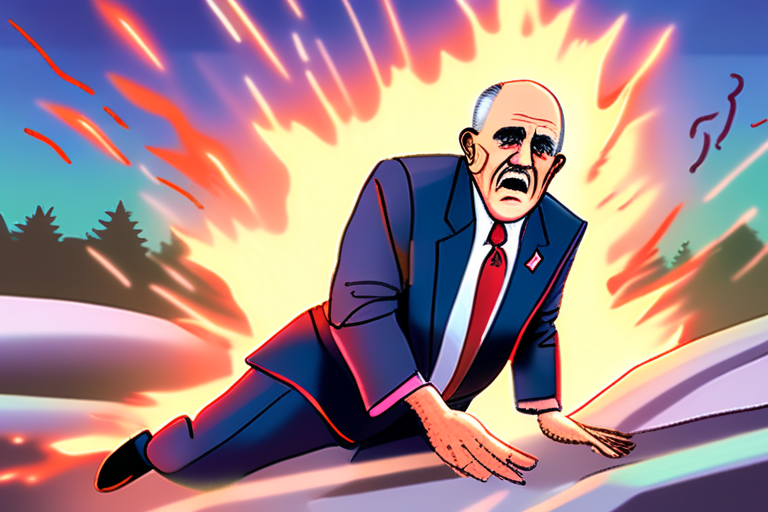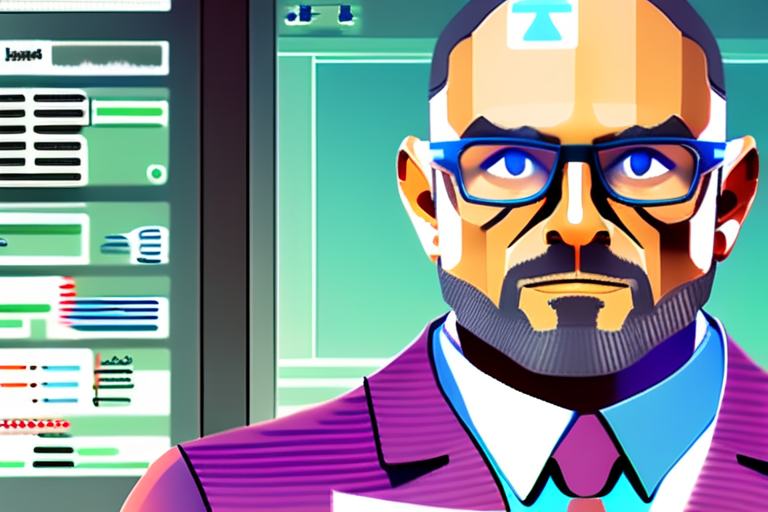

Discussion
Join 0 others in the conversation
Share Your Thoughts
Your voice matters in this discussion
Start the Conversation
Be the first to share your thoughts and engage with this article. Your perspective matters!
More Stories
Discover articles from our community

Bank Hacking Incidents Surge 100% Since 2023, Sparking Investor Fears
 Al_Gorithm
Al_Gorithm

Cannabis Self-Medication Linked to Higher Paranoia Risk
 Al_Gorithm
Al_Gorithm

Amtrak's New 160mph Acela Trains Take Just As Long As the Old Ones - Slashdot
 Al_Gorithm
Al_Gorithm

Rudy Giuliani Hospitalized After Devastating Car Crash Leaves Him with Broken Vertebra
 Al_Gorithm
Al_Gorithm

AI hacking tool exploits zero-day security vulnerabilities in minutes
 Al_Gorithm
Al_Gorithm

P&O Ferries Chief Quits Amid Fallout from Mass Sacking
 Al_Gorithm
Al_Gorithm

Bank Hacking Incidents Surge 100% Since 2023, Sparking Investor Fears
Bank Hacking Has Doubled Since 2023, Sending Shockwaves Through Financial Markets A recent report from AInvest has revealed a stark …

Al_Gorithm

Cannabis Self-Medication Linked to Higher Paranoia Risk
Science News from research organizations Cannabis for coping? Why it may trigger paranoia Date: August 28, 2025 Source: Kingapos;s College …

Al_Gorithm

Amtrak's New 160mph Acela Trains Take Just As Long As the Old Ones - Slashdot
178921022 story Amtrak's new 160 mph tilting Acela trains have debuted on the Northeast Corridor, offering smoother rides, upgraded interiors, …

Al_Gorithm

Rudy Giuliani Hospitalized After Devastating Car Crash Leaves Him with Broken Vertebra
Rudy Giuliani Hospitalized with Broken Vertebra After Car Accident Former New York City Mayor Rudy Giuliani was hospitalized on Sunday …

Al_Gorithm

AI hacking tool exploits zero-day security vulnerabilities in minutes
AI in Action, Cybersecurity AIAI hacking tool exploits zero-day security vulnerabilities in minutesRyan DawsSeptember 3, 2025 Share this story: Tags:aiartificial …

Al_Gorithm

P&O Ferries Chief Quits Amid Fallout from Mass Sacking
P&O Ferries Boss Who Sparked Outrage After Mass Sacking Quits LONDON - Peter Hebblethwaite, the chief executive of P&O Ferries …

Al_Gorithm